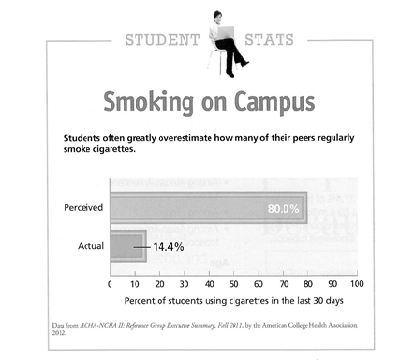The best guide question for paragraph 2 is:
1. Although precise statistics are hard to come by, experts guess that about one out of
every five smokers doesn’t smoke every day. If you’re one of these so-called “social smokers,” you probably believe that your behavior is unlikely to cause any harm. Are
you right? Here’s what the research says about social smoking.
2. Social smokers smoke more than they think. Although gathering precise data is challenging, researchers find that most self-described social smokers actually smoke a
few cigarettes per day. One nicotine addiction specialist notes that people who smoke just one or two cigarettes a week—true social smokers—are very rare indeed.
3. Social smoking leads to addiction. Tobacco researchers point out that the majority of social smokers are on the road to addiction. Initially they may only bum a cigarette
from friends occasionally, but soon they find themselves bumming cigarettes more often. It’s only a matter of time before they find themselves buying a pack a week, then
two or three packs a week. Although they believe that they can quit whenever they want, on average, social smokers end up addicted, and smoking for years. One-third of people who have ever tried smoking become daily smokers.
4. Social smoking increases risk of cardiovascular disease. Studies have shown an increased risk of cardiovascular disease at all levels of smoking. Moreover, smoking begins to exert this effect—causing fatal heart attacks and strokes—as early as age 35. The risk is especially acute for women who also use a hormonal method of birth control
(pills, patch, etc.). One mechanism by which smoking, even at low levels, promotes heart disease is by causing inflammation and dysfunction of the lining of blood vessels.
In one study, young, healthy people who smoked less than one pack per week were found to have a 35% reduction in blood vessel functioning compared with nonsmokers.
5. Social smoking increases cancer risk. Tobacco smoke itself is a carcinogen, as are at least 69 of its component chemicals. Because inherited genetic variations influence cancer rates, as do other determinants such as diet, stress, etc., the influence of
social smoking on cancer promotion is difficult to determine. However, any level of smoking increases the frequency of DNA mutations known to be associated with
cancer. And the risk of cancer is more closely tied to the number of years you’ve smoked—at any level—than to the number of cigarettes smoked per day. As one expert put it, you wouldn’t go out to your car four times a week and inhale exhaust fumes. But that’s the health equivalent of smoking cigarettes four times a week.
6. The bottom line? There is no safe level of exposure to cigarette smoke. If you smoke at all, you are at increased risk of nicotine addiction, cardiovascular disease,
cancer, and other illnesses. Get help, and quit.

a. Do social smokers smoke more than they think?
b. How often do most self-described social smokers actually smoke?
c. Do social smokers actually smoke a few cigarettes per day?
d. Are true social smokers rare?
b. How often do most self-described social smokers actually smoke?
You might also like to view...
Antes y ahora.Listen to the description and then decide whether the following statements are true (cierto) or false (falso). Instructor: Have students listen carefully as you read the following paragraph. Cuando era niña, me fascinaba ver televisión todo el día. Me gustaban los dibujos animados y los anuncios entre los programas porque pensaba que eran cómicos. Ahora, no me gustan los anuncios para nada. En vez de ver programas de televisión, veo películas, especialmente dramas. Si la película tiene un buen guion y los críticos dicen que es buena, ¡quiero verla! Esta persona ve dibujos animados ahora.
A. cierto B. falso
Write the correct pronoun in the blank. (We, Us) residents must report all suspicious activity to the police.
Fill in the blank(s) with the appropriate word(s).
Culture. Répondez vrai ou faux.Éteindre la lumière aide à protéger l'environnement.
A. vrai B. faux
Les activités de la journée. Valérie's supervisor is dividing the day's work up among her staff, telling various people what they are going to do that day. Finish the sentences with the correct form of the futur proche of the verb in parentheses.Susie et moi, nous ____________________ (surveiller) (supervise) le bureau.
Fill in the blank(s) with the appropriate word(s).